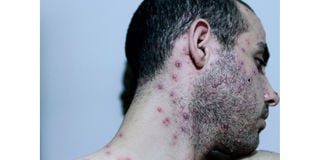WHO renames monkeypox due to racism concerns with the name

Monkeypox a rare smallpox-related virus, causes flu-like symptoms and a nasty rash, and it can be deadly.
Monkeypox disease has been renamed ‘mpox’ due to racism concerns with the name, world health body said in a statement recommending the name change.
According to World Health Organization (WHO), the two names will be used concurrently for a year as ‘monkeypox’ is phased out and ‘mpox’ becomes the preferred term to be adopted in English for the disease.
“Following a series of consultation with global experts, WHO will begin using a new preferred term ‘mpox’ as a synonym for monkeypox. Both names will be used simultaneously for one year,” WHO said in the statement announcing the change.
“When the outbreak of monkeypox expanded earlier this year, racist and stigmatizing language online, in other settings and in some communities was observed and reported to WHO. In several meetings, public and private, a number of individuals and countries raised concerns and asked WHO to propose a way forward to change the name.”
Since the disease suddenly began spreading beyond the West African countries, where it has long been endemic, six months ago, it has killed 36 people out of more than 77,000 cases across 109 countries, according to a WHO count.
The outbreak outside of West Africa has primarily affected young men who have sex with men.
But since peaking in July, the number of people infected with the disease that causes fever, muscular aches and large boil-like skin lesions, has consistently fallen, particularly in Europe and North America, the hardest hit areas in the early stages of the global outbreak.





